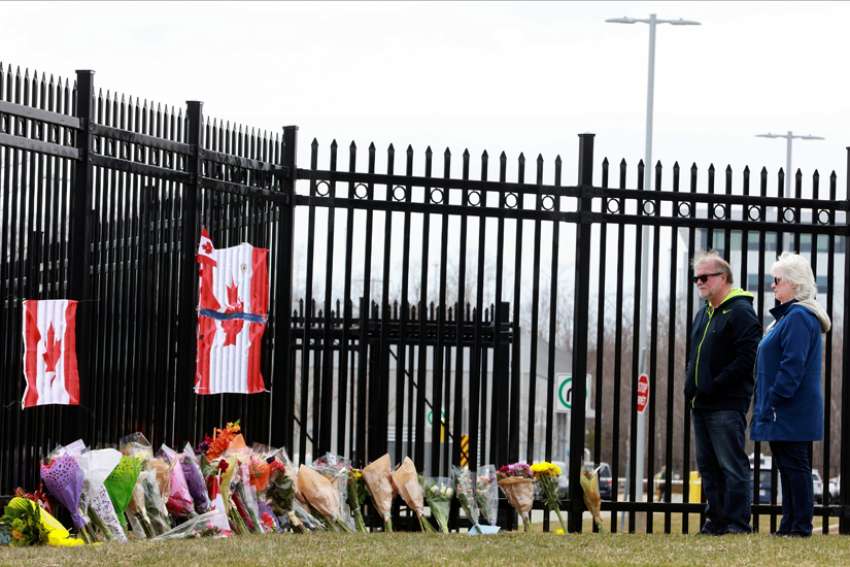Nova Scotians, sequestered in what we hold as our idyllic corner of North America, have been compelled to watch that cruelty force its way into May.
The harsh COVID-19 news that gripped Nova Scotians two months ago was shared across the country, the continent and the globe, albeit along different timelines. It pushed the Nova Scotia government to declare a state of emergency March 22 and to impose social restrictions on the province’s 970,000 residents.
The weekend of April 18-19 unmasked the face of wanton cruelty to the province as a gunman waged a more than 12-hour reign of terror across two rural counties in the centre of Nova Scotia. When it was over, he had killed 22 people across a nearly 150-kilometre swath of destruction.
Still reeling from the inexplicable deaths of so many innocent Nova Scotians, the province was thrust into the midst of another tragedy when a Canadian Forces Cyclone helicopter crashed off Greece on April 29. Among the killed were three crewmen from Nova Scotia.
The bad news just piled on.
A week later, on May 6, three-year-old Dylan Ehler wandered away from his grandmother’s home in Salmon River, near Truro. A massive search of the river and Lepper Brook, where he was last seen, turned up nothing except the boy’s rubber boots.
On May 18, Nova Scotians received yet more heartache. The Canadian Forces Snowbirds, which two weeks ago flew over parts of this province that included the Portapique area where the shooting rampage started, incurred a fatal crash in Kamloops, B.C.
Capt. Jennifer Casey, a public affairs officer with the Snowbirds, died when one of the Snowbirds crashed into a house while involved in a unique cross-Canadian tour called Operation Inspiration, intended to raise the spirits of residents dealing with the pandemic.
Casey grew up in Halifax, earning degrees from Dalhousie University and the University of King’s College. She was employed as a reporter, anchor and call-in show producer at a Halifax radio station before joining the Canadian Forces in 2014 and the Snowbirds just two years ago.
Accolades for Casey’s personal and professional demeanour pervaded Twitterverse as the weekend continued, including a note from the office of Mike Savage, mayor of Halifax Regional Municipality, which concluded with “the tragic spring of Nova Scotia 2020 leaves us in shock.”
Premier Stephen McNeil tweeted, “Nova Scotians stand with you and send our love, thoughts and prayers.”
The premier has been issuing messages of sympathy and prayer at an unprecedented rate over the past six weeks, since the first of 56 COVID-related deaths was confirmed in the province.
Jesuit Fr. James Martin of Halifax wrote in a recent New York Times opinion piece that he is often asked why the pandemic is happening and where God is in all of this. Martin said the overall confusion for believers who are denied even the basic act of physically comforting those who have lost loved ones is captured in the “inconsistent triad,” which in summary, states that God is all powerful, therefore God can prevent suffering but God does not. Therefore, God is either not all powerful or not all loving.
But Martin said the answer as to why suffering and infectious diseases ravage humanity is “we don’t know.”
Jesus, because He shared our human nature, provides a model to deal with suffering, Martin writes.
“When Jesus saw a person in need, the Gospels tell us that His heart was ‘moved with pity,’ ” he said.
His guidance for Nova Scotians grappling with the horrific events of the past two months, then, is to have hearts moved by pity.
Additional sound advice is for Nova Scotians to do what we’ve always done best, to pull together and help one another in tough times, even if that help must be offered from a distance.
(Campbell is a reporter at the Halifax Chronicle Herald.)


